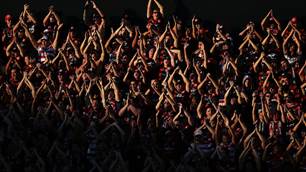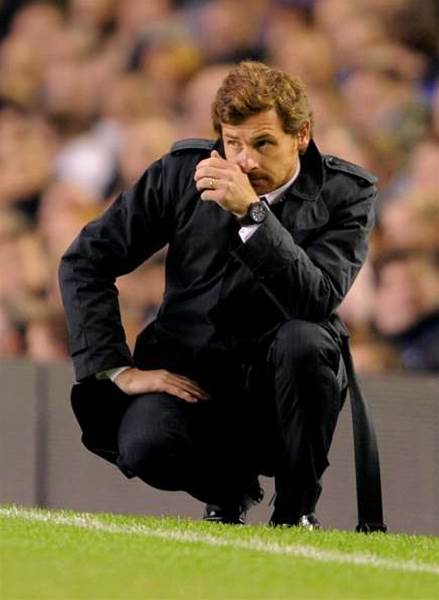Chelsea manager Andre Villas-Boas believes the issue of Sepp Blatter's comments on racism should now be put to bed after his apology.
The Portuguese boss agreed that the FIFA president's suggestion that on-pitch incidents of racial abuse could be resolved with a handshake was wrong, but said the Swiss' record throughout his tenure in the post should be taken into account before he is called upon to resign.
"To put in doubt the leadership of Sepp Blatter as FIFA president is not for me to say or managers to say," the 34-year-old said.
"It's for media to continue or not to pressurise him and analyse what he has been doing for the game, and not only the situation of the words that he said."
"Blatter made his apologies today [on Friday] and end of story."
"When a person assumes he has made a mistake, it's for all of us to accept a mistake was made."
"It's good that person is able to come out and retract the words that he said."
"There are things that should have been avoided in the first place. But at least there is humility."
Villas-Boas, whose captain John Terry is currently under investigation regarding allegations of racist abuse directed at QPR's Anton Ferdinand, refused to comment on Blatter's later claim that players found guilty of racism should be kicked out of football.
"I cannot philosophise on Blatter's words," he insisted.
The Blues boss then added his opinion to the row over Liverpool striker Luis Suarez, who was charged on Wednesday with abusive behaviour by the FA.
Villas-Boas responded to comments made by Brighton coach Gus Poyet, who had claimed that the Uruguayan forward was the victim of cultural differences and that his alleged target, Manchester United's Patrice Evra, was 'crying like a baby' about the situation.
"Gus Poyet came out with those words because he has the view of the Uruguayan people," said the Chelsea manager.
"It's not that it's the correct view but it's his view of the situation."
"It doesn't mean everyone has to agree with what he says. The most important thing is to continue to fight it aggressively to 'take it out'."
The ex-Porto coach also praised the high level of awareness and campaigning on the issue in England.
"[Racism] should be banned from the sport in any kind of way, in every country, but different countries react differently," he said.
"Not that all of them aren't fighting discrimination and racism, but there are different cultural behaviours."
"All of the countries are involved in different kinds of ways in fighting discrimination and racism."
"It plays a decisive part for England to be one of the most important nations in taking it through."
Related Articles

Rice sent off as Arsenal are held by Brighton

QPR add to Luton boss Rob Edwards' woes in Championship













